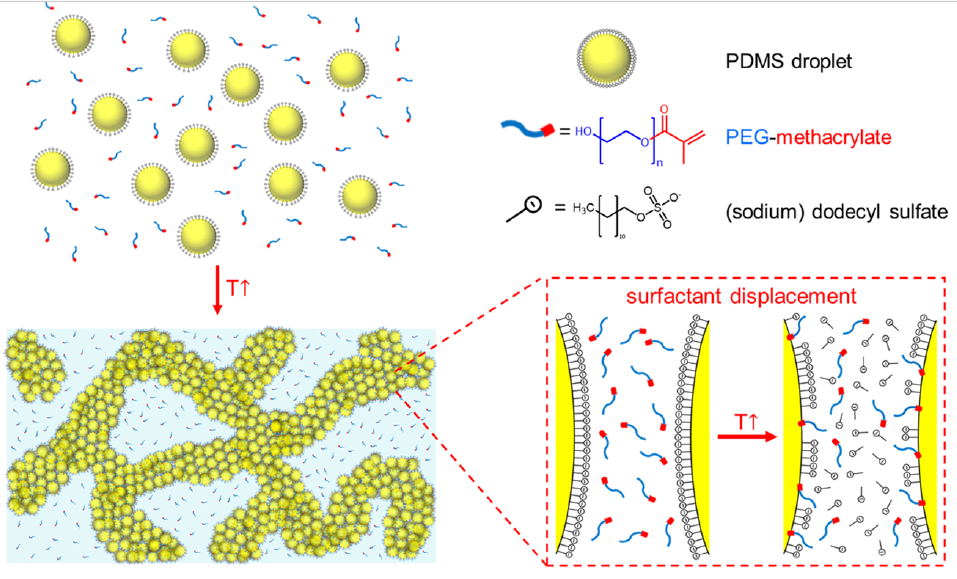Nanoscale colloidal dispersions have many useful properties, including viscoelastic rheology and yield stress behavior, unique surface chemistries and optical properties, and the possibility of creating tunable structures at multiple length scales. Nanoemulsions are especially well suited to applications such as drug delivery and cosmetics due to the ability to load hydrophobic active ingredients within the dispersed phase droplets, making them an important class of materials for study. This research explores the microstructure and rheology of thermogeling nanoemulsions, a subclass of nanoemulsions that creates a percolated gel network at elevated temperatures. Gelation occurs via a temperature dependent polymer bridging mechanism which mediates the attraction of the dispersed phase. Novel structures and non-obvious rheological properties arise from these materials, leading to unique properties and a larger degree of control over gel structure.

